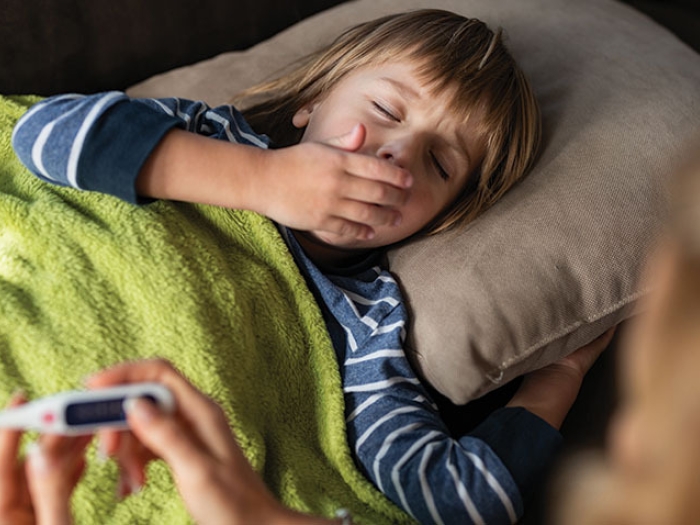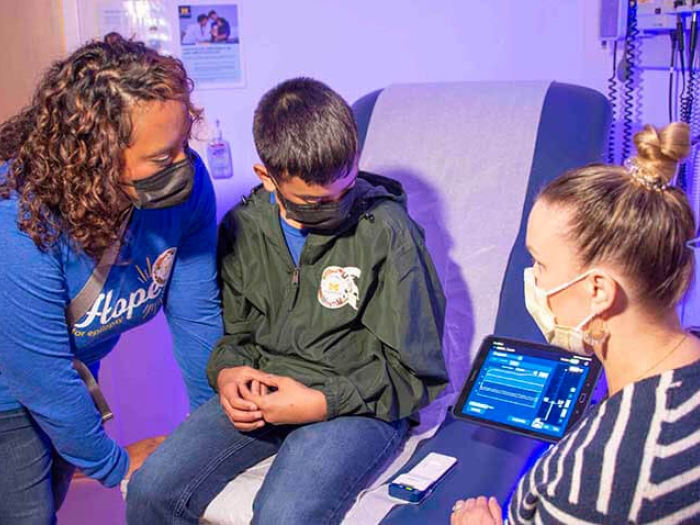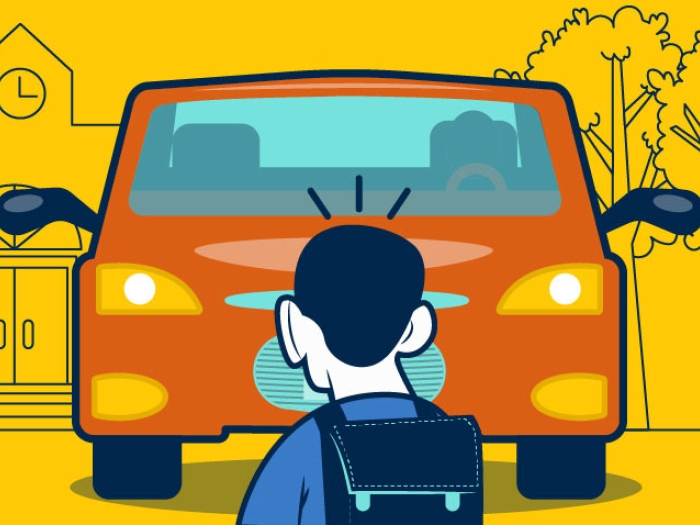Storytime can provide more than entertainment; it’s a way to discuss difficult topics with your little ones. A Mott child life specialist shares several books that can help.
12:00 PM
Author |

Talking to your child about a hospital visit or a serious illness can be hard.
MORE FROM MICHIGAN: Sign up for our weekly newsletter
Books that address these sensitive health topics, read together as a family, might prompt shared conversation and comfort — especially when an adult is unsure how to start.
"Oftentimes, we'll find that parents don't know what to say to their child about surgery, for instance, so they don't tell them anything," says Andrea Rentz, a certified child life specialist at the University of Michigan C.S. Mott Children's Hospital.
"Books can help kids prepare for what to expect at their level."
SEE ALSO: What Kids of Different Ages Understand About Cancer
Her favorite titles share several qualities: accurate information, a suitable balance of words and images, and an age-appropriate yet honest approach to the subject matter.
In her own words, Rentz shared 10 titles she recommends to Mott patients and their families.
Hi, My Name is Jack by Christina Beall-Sullivan
This is one of my favorite books. Jack has a little sister, Molly, who is in and out of the hospital. They keep it universal; they never specify what she is sick with. But it identifies all of the feelings a healthy sibling can have, from jealousy to fear to anger to loneliness — and it addresses them in a way that parents are able to have a conversation with their kids.

The Human Body: A Shine-A-Light Book by Carron Brown and Rachael Saunders
It's best to have a flashlight when reading this book. The first page shows a picture of a pregnant mother, and when you shine a light behind it you can see the baby in utero, almost like a virtual X-ray. Other scenes show skeletons and muscles. It's a neat way to engage kids on that sensory level to explore their body and how it works.
Going to the Doctor by Anne Civardi
This book follows three kids, with each one having different reasons why they need to go to the doctor. The words and illustrations show the basics of listening to the heart and lungs as well as checking your ears and throat. The little baby needs to have an immunization. Everybody goes through many of the same steps at the doctor's office; this story normalizes the experience.

The Invisible String by Patrice Karst
In this book, a mother explains to her children that we are connected to those we love with an invisible string, even when apart. When they are at school and miss her, their love travels and tugs on her heart. I love that it can be used in many life situations such as going to day care or being in the hospital. Even in death, we are still connected by the invisible string of love.
The Surgery Book: For Kids by Shivani Bhatia, M.D.
Written by an anesthesiologist, the content is very accurate. It talks about a boy named Iggy who is getting his tonsils out — a very common procedure but also one of our most challenging. When typically well children come in, it can be scary because they don't know what to expect. Told from Iggy's perspective, this book does a good job breaking down what's going to happen.

In My Heart: A Book of Feelings by Jo Witek
This book is fantastic. It explains how there are feelings inside each of us — and how my heart feels when it's happy or when I'm brave, how it feels when I'm mad or calm or lonely. It's a really great book for parents and caregivers to help children name and identify their feelings so that they're able to express themselves and be given the tools to regulate those emotions.
I'm a Big Brother or I'm a Big Sister by Joanna Cole
Each title is straightforward about what it's like to have a new baby in the house. It explains what it means when a baby cries. And it offers ways a child can help. It addresses feelings of jealousy but also elevates the role of being an older sibling, explaining the cool things you can do. That helps create a feeling of importance that can be lost when attention shifts to the baby.

A Terrible Thing Happened by Margaret M. Holmes
The story follows a cartoon raccoon that witnessed a terrible but unnamed thing. That could relate to anything a child has faced, such as abuse or trauma. The book explains what happens to this raccoon as he internalizes his feelings, trying to forget about the terrible thing and how that doesn't work. Finally, he talks to an adult and feels better. This book is a great tool when it can coincide with therapy.
When Dinosaurs Die: A Guide to Understanding Death by Laurie Krasny Brown and Marc Brown
I recommend this book because it's so inclusive. It starts by explaining what it means to be alive and that death happens for different reasons — an illness or an accident or that a baby isn't strong or healthy enough. One page addresses war and other reasons such as poverty or drug abuse. It breaks down the complexities of these emotions and helps provoke questions. It is universal to cultural and faith traditions.

Jonathan James and the Whatif Monster by Michelle Nelson-Schmidt
Here, a boy goes through a variety of scenarios and what he fears — skinning his knee or getting laughed at by friends — and his friend challenges him that in each of those scenarios is a prize to find: What if you climb to the top of the tree or if taking a chance makes you the best friend you've ever had? This book is good for preschoolers and school-age children.

Explore a variety of healthcare news & stories by visiting the Health Lab home page for more articles.

Department of Communication at Michigan Medicine
Want top health & research news weekly? Sign up for Health Lab’s newsletters today!





